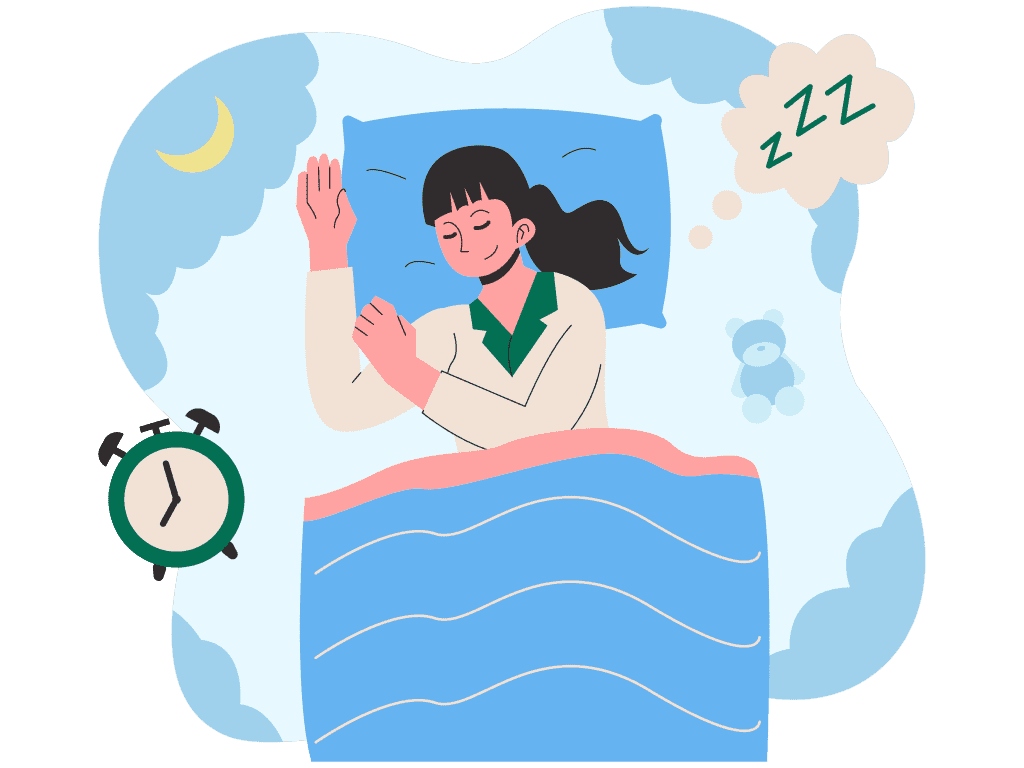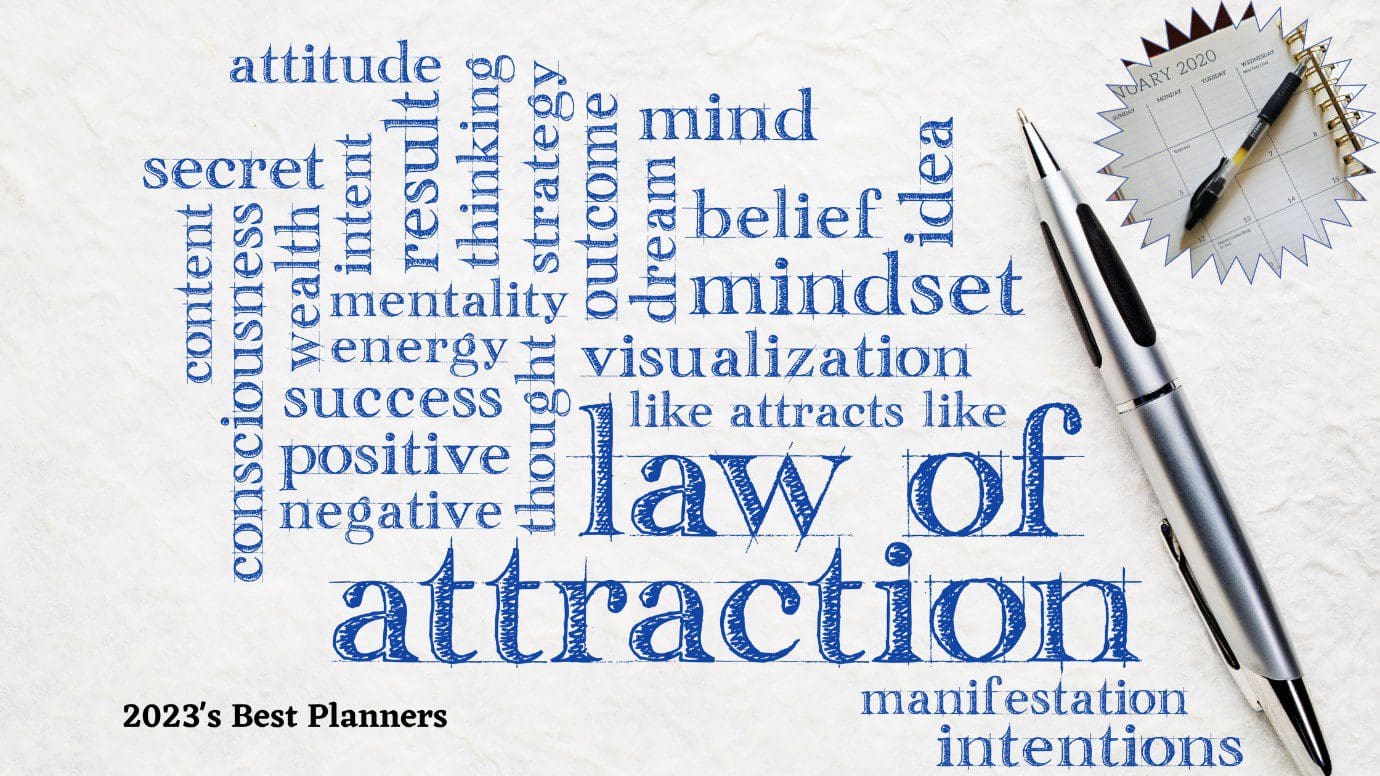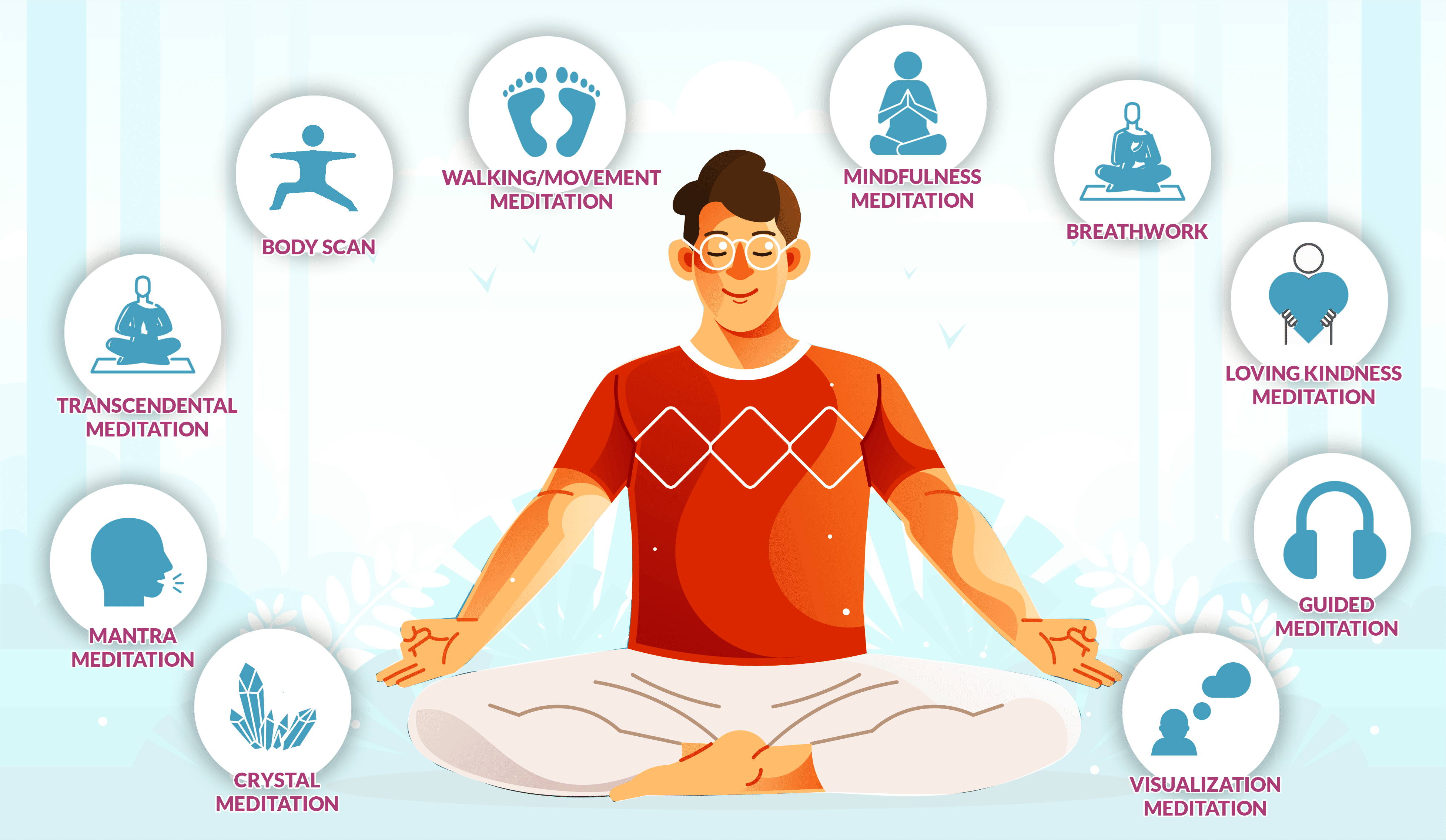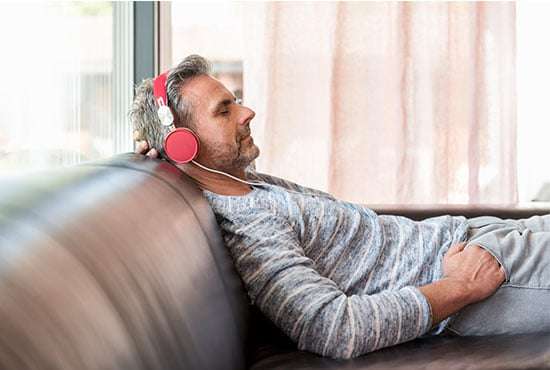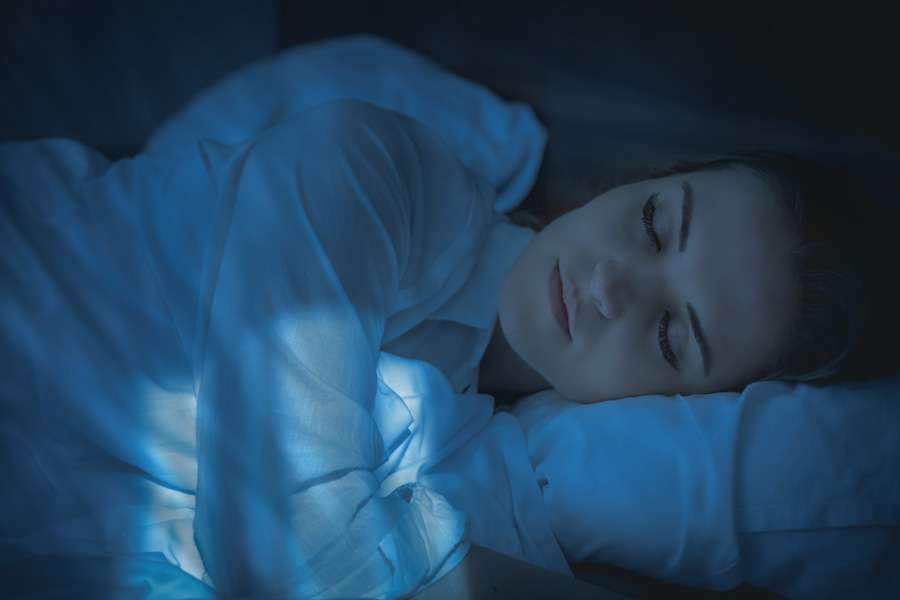
The Best Hypnosis For Sleep Method.
Sleep is crucial to our health, yet many of us find getting a good night’s rest challenging. Only some people are lucky enough to fall asleep as soon as they lay in their beds after a hectic day.
Did you know that a vast population cannot get enough sleep to function optimally? According to the Center for Disease Control and Prevention, the sleep outcomes for adults are less than 7 hours, which is considered the standard for adults below 60.
If you’re one of the millions who tend to struggle with issues from insomnia or other sleep issues, you know how frustrating and exhausting it can be. While there are tons of pills available on the market claiming to help one sleep better, not everyone is comfortable with being dependent on them
So what is the best hypnosis for sleep method you can use and feel comfortable with to enjoy the experience? Explore whether it’s ready made audios, written scripts, or self hypnosis techniques. Let’s dive in now………
What is Sleep Hypnosis?
Sleep hypnosis is an effective mind- body energy technique used to help people fall asleep and have a better sleep.
It involves guiding the person into a state of deep relaxation where they are more receptive to suggestions. Once in this transcendental state, positive suggestions are given to help the person overcome many sleep-related issues, such as insomnia, sleep apnea, and nightmares.
A hypnotherapist can do this in person or can be through hypnosis audios.
Hypnosis intervention can help improve sleep quality and the time frame for drifting into blissful sleep. It is a little similar to meditation.
During hypnotic suggestions, the individual is in a state of flow. It is bypassing the analytical gatekeeper mind and immersing oneself with positive suggestions of drifting into a relaxed deep sleep.
Hypnosis usually leads to better sleep outcomes by reducing anxiety and common behavioral issues associated with sleeping disorders.
Using hypnosis for sleep helps our minds to be more receptive to suggestions and verbal cues.
A sleep hypnosis session commonly includes the following components:
- Settle Down:
The session begins with settling down in a comfortable position. The surroundings are quiet, and the lights are usually dim, creating ambient cues for peace and relaxation.
- Let Go:
The hypnotherapist or hypnotic audio will guide you through releasing current overwhelms and freeing your mind from wandering or stressful thoughts. It’s more about navigating the busy mind back onto the here and now, allowing the physical body to release tension from all muscle groups.
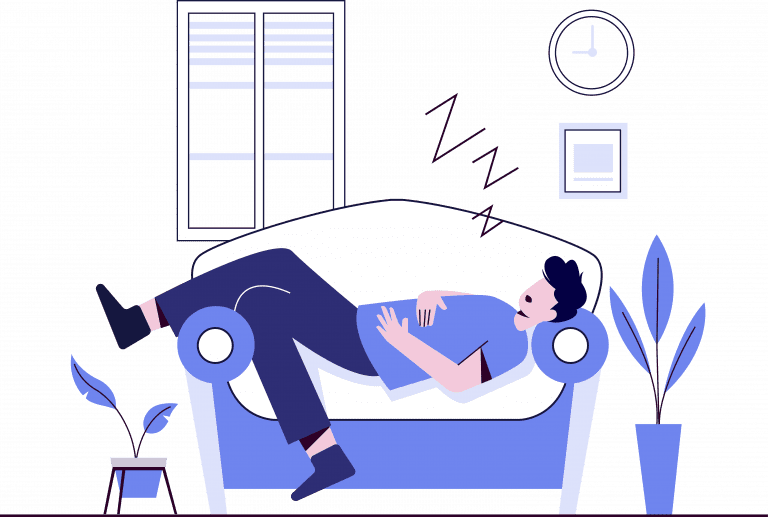
- The Induction:
The hypnosis for sleep component aims to free the conscious (critical thinking) mind and open up the subconscious mind. It puts the individual in deep relaxation so the subconscious mind can be trained to remember to have a wonderfully relaxed sleep.
- Breathing:
Deep and conscious breathing supports us initially to get into a more relaxed transcendental state. This helps one enter the subconscious mind, ready for focused suggestions to sleeping better.
- The Suggestion:
This is the central and one of the main parts of sleep hypnosis. The suggestion means using specific words to immerse the desired thoughts into the subconscious mind.
A person usually remembers these words after a few sessions before sleeping. Recalling these cues makes one look forward to going for a restful sleep.
Even though hypnosis has been met with some skepticism, clinical studies show promising results when using this mind-body energy technique in treating conditions like insomnia, anxiety, PTSD, and other sleep issues.
Here is some more information about how hypnosis works when it comes to getting a good night’s sleep.
Does Sleep Hypnosis Actually Work?
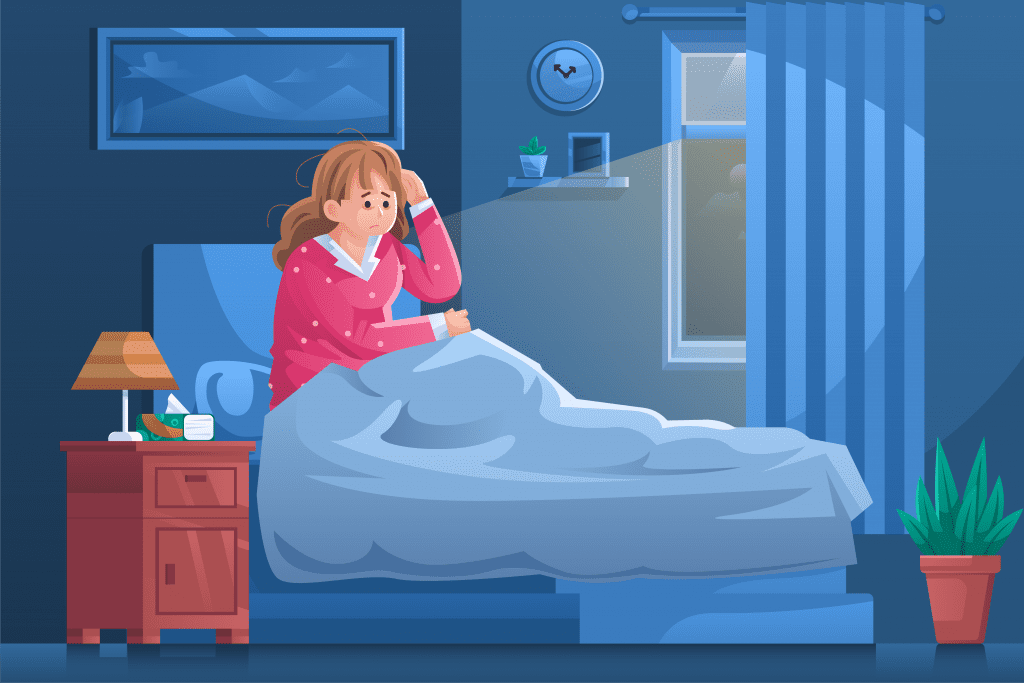
Many people ask this question. Does sleep hypnosis actually work? It certainly is growing in popularity exponentially due to its various benefits. But let’s see what clinical research says about the effects on sleep outcomes using this holistic mind-body medicine.
Hypnosis is a helpful tool to encourage relaxation, redirect one’s thoughts, and promote deep sleep in people with insomnia or other sleep disorders like anxiety and mood disorders. Here is more information about how hypnosis can work for a good night’s sleep.
According to a systematic review that included one hundred and thirty-nine studies, sleep hypnosis showed promising results in promoting deep and better sleep in adults. Although a lot more research is needed, hypnotherapy has been shown to have very low instances of adverse effects only on some individuals. However, mainly positive outcomes came from the results.
Hypnosis has been shown to benefit by inducing better sleep and alleviating some conditions that hinder a peaceful sleep, such as chronic pain conditions. According to one study, hypnotic suggestions using audio or hypnotherapy sessions can help people with low back pain sleep better.
Also, what was interesting was that the study found that two sessions of self-hypnosis training with audio recordings may be as effective as eight sessions of hypnosis treatment.
A hypnotic suggestion, in many cases, did help with slow-wave sleep (SWS). This is vital in restoring our body and promoting new neural connections. Another study showed that sleep hypnosis deepens the sleep cycle in young, healthy women. It also seems to be a more desirable treatment option for correcting sleep disorders as it’s a natural alternative compared to sleep medications.
Although many studies have proven the benefits of sleep hypnosis and suggested it as a promising and safe treatment option, more extensive research is needed to make it a standardized therapy for sleep disorders.
Self Hypnosis For Sleep
People normally have trouble falling asleep because it can be hard to focus on one thing. Random and stressful thoughts can keep popping up and preventing people from sleeping. Also, having an unhealthy bedtime ritual can damage healthy sleep routines. Combining this with a healthy sleep routine.
Guided hypnotic suggestions help redirect your focus back to the goal you want to achieve (sleep, in this case).
You can either record your voice using a hypnotherapy script or use a ready-made guided hypnotic suggestion audio.
✶ Self-hypnosis for sleep is comprised of the following steps: ✶
- Set a Goal:
Setting a goal can give your wandering mind something to keep your focus on. Set a simple plan for your self-hypnosis, like “I want to fall asleep peacefully within a few minutes” or “I want my mind and body to be very relaxed.”
- Find a Comfortable Spot:
You will have an easier time falling asleep if you do hypnosis in a comfortable and quiet setting. This means turning off bright lights and ensuring no chance of being interrupted. It is best to do this in a spot where you feel comfortable, such as your bed (in this case), but it’s up to you to choose your favorite place.
- Close Your Eyes and Relax:
As you close your eyes, try to relax your muscles. Let go of the built-up tension from your head, neck, shoulder, torso, legs, and feet. Keep your focus on one muscle group or a particular body part at a time, and then move to the next. You can also achieve relaxation by alternatively contracting and relaxing the muscles until your whole body is relaxed. You can even count down from 50.
- Focused Breaths:
Take a very deep breath in through the nose and slowly exhale through your mouth. Keep your breaths deep and even while relaxing your muscles. With every breath you breathe, imagine your whole being is now lighter, stress-free, and starting to drift off, safe and secure.
- Continue the Process:
It’s normal for the mind to wander and lose focus. Every time this happens, gently redirect your focus to your breathing, keeping your mind as clear as possible. Once you have achieved a state of calm and quiet, you will enter the hypnotic state.
- Hypnotic Suggestion:
Consider the goals you set for yourself earlier, and make the statements clear and straightforward. You can also use visualizations according to your goals. Once you are in deep hypnosis, your mind will be more accepting of these suggestions.
For example, if you want to feel relaxed, really immerse yourself at the beach or another place that you love to be.
Alternatively, if your goal is to fall asleep quickly and sleep through the night, program your mind with things like
- "I will have a deep sleep tonight."
- "I will sleep soundly until it's time to wake up."
The technique mentioned above is only one of the various methods you can use to induce deep sleep hypnosis.
Using support from readymade hypnosis audios makes falling asleep so much easier.
It’s so convenient since you don’t need to worry about writing your own hypnosis script or recording it (of course, unless you want to).
If so, check out all of the 20 plus professionally written hypnotic suggestion scripts by clinical hypnotherapists.
If you prefer to have it all done for you, the benefits of ready-made hypnotic audios aren’t expensive and are very convenient to have on hand.
I personally used to use them when I did a lot of shift work at night in mental health over the years.
Anyone who does shift work would know their whole circadian rhythm is thrown out the window!
So, trying to get some quality sleep during the day before the long night ahead is no fun at all!
Many people find guided hypnosis audios great supportive aids for transitioning to sleep a lot easier and faster to fall asleep.
✶ How many sessions of hypnosis do you need for sleep? ✶
If you see a clinical hypnotherapist, the first session includes questions to evaluate the concerns and tailor the program to your specific needs.
Regarding how many sessions you need, it really depends on a couple of things—the severity of insomnia and how receptive you are to hypnosis.
Some people find that they only need two to three sessions of hypnotherapy to see an improvement in their sleep habits. Others may need more sessions and may also use sleep hypnosis audios regularly to maintain all of the benefits and develop a better sleep pattern over time.
Is Sleep Hypnosis Safe?
Hypnotherapy or hypnosis might not be suitable for everyone. As in some rare cases, it has been known to cause some side effects, such as headaches, drowsiness, or dizziness.
Also, for people on certain medications or who suffer from any mental health concerns, the first port of call is to speak with a medical practitioner and get a health and well-being plan, as hypnosis may not be of benefit. Instead, it may have some adverse reactions.
Always look after your health and well-being, and listen to your bio-feedback to create a healthy bedtime routine that helps with living your best life.
Final Take
For most people, hypnosis for sleep has been a safe mind-body tool to relieve stress and help with sleeping patterns, and it doesn’t carry the same side effects as prescription drugs.
Sleep hypnosis has shown some mixed results in efficacy, though thousands of people have reported numerous benefits. Also, a growing number of mainstream practitioners are now adopting hypnotherapy into their existing practice, using this alternative mind-body energy tool, and embracing it as part of a holistic framework.
Always visit your healthcare provider if you have problems sleeping to address the issue. They can normally answer your questions and guide you in the right direction with options. If you want to try a holistic or alternative method, you can get more information from a certified clinical hypnotherapist online or through a personal visit.
Frequently Asked Questions (FAQs)
- How long does sleep hypnosis last?
The length of sleep hypnosis can depend on the method you are using. Most sleep hypnosis audios last from 10 to 60 minutes, but people usually fall asleep before they reach the end.
The session can last around 60 to 90 minutes if you see a clinical hypnotherapist. During this time, the therapist will be focused on your individual needs.
- What is the difference between sleep meditation and sleep hypnosis?
Both meditation and sleep hypnosis put the individual in an altered state of mind and result in similar changes in their brain waves. While meditating, the person feels more aware of the present moment.
On the other hand, a person practicing self-hypnosis reports it to be a dream-like state.
Hypnosis is also considered a problem-solving therapy directed towards a specific goal.
While meditation isn’t necessarily a goal-focused session (where you focus on different goals you want to achieve), it’s more breath-work techniques releasing stressful thoughts, concentrating on the “here and now.”
- Are you asleep during hypnosis?
Hypnosis aims at directing your focus on a particular thought, helping you get into a trance state of relaxation. Although for many, it can feel like a sleep state because the mind is so relaxed. You do not fall asleep entirely during hypnosis.
- Is hypnosis mind control?
Hypnosis is not a mind control where you lose all your senses and have no control. While hypnosis can make you more open and receptive to positive suggestions, you are still in control of your actions and make your own decisions.
You could also decide what goals you’d like to focus on for better sleep. For example- you may want a hypnosis session or audio to release the stress that stops you from sleeping. Or you could choose hypnosis audio for wanting to wake up fully energized and happy, etc.
You can browse from over 23 + hypnosis audios to suit your needs. Always select hypnosis audios or well-written scripts from certified professional clinical hypnotherapists.
If you are still unsure how hypnosis works, here is more information and a quick video that could help answer more of your questions. You may be surprised at how hypnosis could benefit a variety of issues, such as anxiety, stress relief, and goal setting.
Thank you for being here, and we hope you found this article informative about hypnosis for sleep!
Here are more hypnosis blogs for you to explore.
Disclaimer: Our web pages and blog posts provide general information for general purposes only and not to be used for any medical, legal or alternative health advice for any type of physical, mental health or financial concerns.Always speak to your practitioner before embarking on any new alternative treatments. If you have concerns about any medical matters, you should always consult your healthcare provider without delay.We thank you for taking full responsibility for your own health and wellbeing in life. ☺
 click here to learn more about hypnosis
click here to learn more about hypnosis

